4201
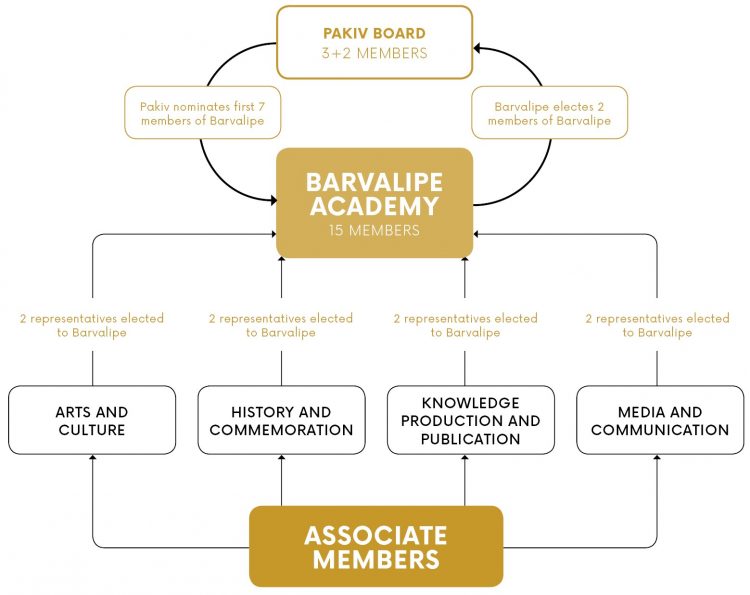
The Pakiv Board is the highest organ of ERIAC. The Board oversees the work of ERIAC, safeguards its values and approves the financial and activity plans.
The members of the Pakiv Board are nominated by ERIAC’s founders: the Secretary General of the Council of Europe (one member), the Roma Foundation for Europe (one member) and the Alliance pour l’Institut Rom Européenne pour les Arts et la Culture (one member). Further two members have been nominated by the Barvalipe Academy on their first meeting.
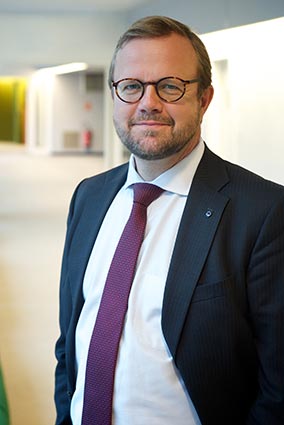
Mr. Bjørn Berge serves as the Council of Europe’s Deputy Secretary General since 1 March 2021.As the Deputy Secretary General he is involved in a number of key areas of the work of the Organisation, including advising and overseeing the implementation of the Secretary General’s reform agenda, in line with the decisions and priorities of the Committee of Ministers. His priorities include shaping the Programme and Budget, while ensuring that the Organisation’s activities have maximum impact in advancing democracy, human rights and the rule of law. He also oversees the Council of Europe’s staff policy, as well as other key areas of the work of the Organisation. Before taking up his post, Mr. Berge was for a period of four years Director General and Secretary to the Committee of Ministers of the Council of Europe. Between 2009-2017, he served as Director of the Private Office of the Secretary General and the Deputy Secretary General, helping to prepare, co-ordinate and implement a number of comprehensive reforms of the Organisation. Mr. Berge has over thirty years of international professional experience. As a former Norwegian diplomat, he served as International Adviser to the Prime Minister and as Deputy Director of the Foreign Minister’s Cabinet responsible for all matters related to Parliament. He also served as speechwriter to three Norwegian Foreign Ministers. Mr. Berge has published several books on a range of issues relating to speech writing and speeches, as well as articles on the Council of Europe’s mandate and work. He was a Fulbright Scholar and holds a M.A. in International Relations from the Paul Nitze School of Advanced International Studies (SAIS), Johns Hopkins University, Washington D.C., USA.
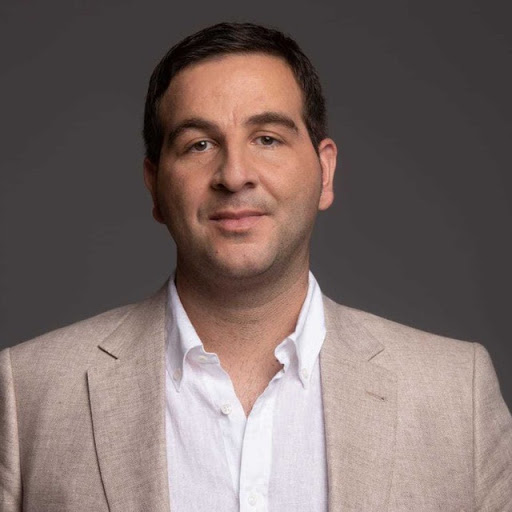
Dr. Ismael Cortés-Gómez is a political philosopher who holds a double academic position as a part-time lecturer at the Unesco Chair of Philosophy (Universitat Jaume I de Castelló) and as a visiting researcher at the Institute DEMOS Paz (Universidad Autónoma de Madrid). He holds a PhD in International Studies of Peace, Conflicts and Development by the UNESCO Chair of Philosophy for Peace at Universitat Jaume I. He has been a researcher at the University of Nottingham, the International University of Andalusia, and the Carlos III University. He has been an expert consultant in the OSCE – ODHIR project “Turning words into action. Combating anti-Semitism and other forms of intolerance (2015-2018)”. He has worked as a policy analyst for think tanks such as the Center for European Policy Studies and the Open Society European Policy Institute. He was a post-doctoral fellow of the Roma Studies Program at Central European University. He coordinated the book Dimensions of Antigypsyism in Europe. Currently, he serves as an MP in the Spanish Parliament. Dr. Cortes also authored several articles in scientific journals and international newspapers. His research interest focuses on the interrelation among law-culture-politics, by analyzing how ideologies constitute institutional norms, policy frames, and action programs.
Dr. Cortés-Gómez has worked as a policy analyst for Open Society Foundations from 2016 to 2018, both with the Budapest and the Brussels office; he also collaborates as an associate researcher with the Brussels-based think tank Centre for European Policy Studies. He has published numerous papers in peer-reviewed journals and op-eds with newspapers such as Huffington Post, Le Monde Diplomatique, Euractiv, and El País. His work is deeply engaged with the criticism of new forms of racism and ethnonationalism in the European Union.
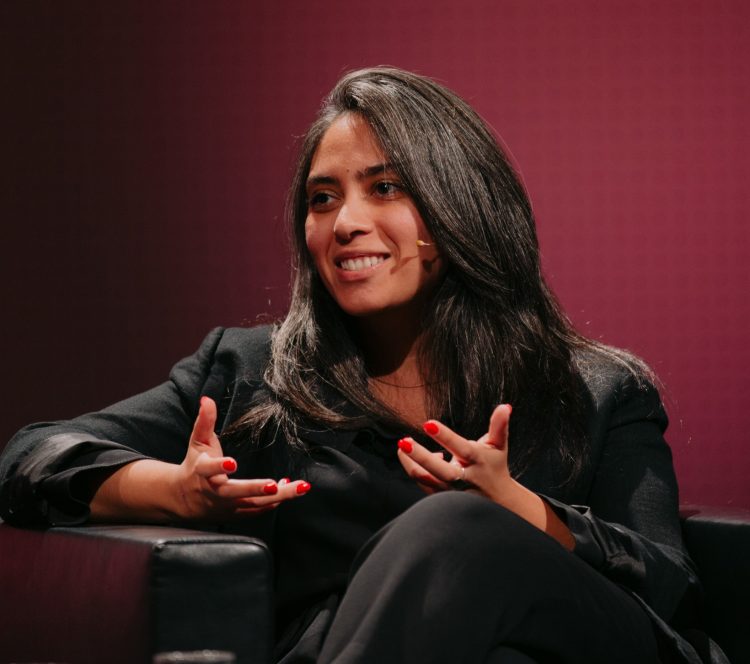
Dr. Ioanida Costache is a Romani violinist, audio-visual artist, and ethnomusicologist. She is an assistant professor of ethnomusicology and by courtesy, Anthropology at Stanford University, where she also serves as a Faculty Affiliate at the Center for Comparative Studies in Race and Ethnicity. Her scholarly work brings together thinking on race, coloniality, performance, and affect to investigate the inscription of Romani history and subjectivity into Romani sonic and artistic expression, examining how sound structures the political and social belonging of Romani peoples in ways that both reify and challenge processes of identity formation and racialization. Costache’s writing has been published in EuropeNow, RevistaARTA, Critical Romani Studies, and European History Quarterly. Her research has been supported by two Fulbright Grants, the Council of European Studies and visiting and postdoctoral fellowships at the University of Pennsylvania, the U.S. Holocaust Memorial Museum, and the USC Shoah Foundation. Her creative work as a violinist and audio-visual artist has been exhibited in San Francisco, CA, New York City, Bucharest, Romania and at the 2022 Roma Exhibition Collateral Event at the 59th la Biennale di Venezia.

Mr. Mensur Haliti is Vice President for Roma for Democracy and Network Development at the Roma Foundation for Europe, and President of the Roma for Democracy Foundations. He holds an Executive Master of Public Administration from the Hertie School of Governance, specializing in governing regimes and corruption control, and has completed executive programs in governance, systems thinking, and scenario planning at Harvard, MIT, and Oxford. Over two decades, he has worked across institutions, movements, and political spaces—helping shape thousands of Roma political voices and building some of the most credible and impactful Roma-led movements and institutions in Europe. As part of his doctoral research, he is developing the Roma Political Sovereignty Doctrine (RPS)—a constitutional framework that reconstructs over two millennia of Roma governance through mnemonic law, ritual jurisdiction, and non-territorial authority. Rather than seeking inclusion within exhausted liberal paradigms, Haliti positions Roma epistemology as a foundation for post-statist governance. His writing contributes to a new constitutional canon that positions Roma political thought as a sovereign tradition—one that informs the reconstruction of governance, affirms the legitimacy of Roma self-rule, and participates in the co-design of future political orders.

Ms. Dijana Pavlović is an Italian-Serbian actress, activist, and politician. She graduated from the Faculty of Dramatic Arts at the University of Belgrade, took part in international theatre festivals across the former Yugoslavia, Romania, and Bulgaria.
Over more than two decades, she has promoted Roma culture and literature, acting as a cultural mediator in schools and campaigning on language rights and against forced evictions in Italy. Pavlović was nominated to Milan’s City Council in 2006 on the United list alongside Dario Fo and ran for the Italian Parliament in 2008 with La Sinistra l’Arcobaleno, though she was not elected.
An accomplished performer, she employs theatre and poetry to reshape public perceptions of her community and advocate for Roma rights across Europe. Currently, Pavlović serves as an ERIAC Board Member and President of the Kethane Movement—the transnational Roma and Sinti network—and as spokesperson for the Consulta Rom e Sinti di Milano; she has been based in Milan since 1999.
The Barvalipe Academy is the agenda-setting and strategic body of the Institute which has an advisory and inspirational role, in order to fulfill ERIAC’s objectives.Barvalipe is composed of 15 members – highly regarded, publicly acknowledged individuals, with competencies in the areas covered by ERIAC activities. Two thirds of the Academy members must openly declare their Romani ethnicity, respecting the diversity among the Romani communities. Gender balance must be ensured.
The first 7 members of the Barvalipe Academy are nominated by ERIAC’s Board “Pakiv”. The remaining 8 members of the Baravlipe Academy are elected by the members through the thematic sections. Each section delegates two representatives to Barvalipe. Two members of Barvalipe Academy, elected internally, are delegated to the “Pakiv” Board and become a bridge which connects the ERIAC’s associate membership with the Board.
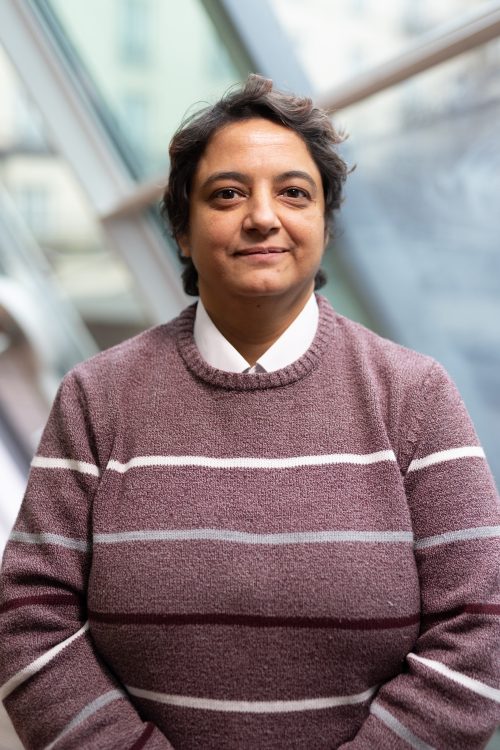
Ms. Bajsa Arifovska, born in 1978 in Kočani, Macedonia, is a renowned multi-instrumentalist and professor of traditional Macedonian instruments. She studied at the Skopje Music Academy and began her professional career with the Dragan Dautovski Quartet, touring internationally and mastering instruments like the kaval, gajda, tambura, and tapan. Bajsa has actively promoted Macedonian and Roma folk music, arranging and conducting the Mandolin Orchestra at the Darhia Roma Cultural Center since 2003 to 2009. She has taught at the Ilija Nikolovski-Luj State Musical High School since 2000 to 2013. Currently she is working in the National Ensemble for Folk Dances and songs – “Tanec” in Skopje, where continue her professional work with composing, arranging and performing. Her work blends Macedonian folk traditions with modern world music influences. She has recorded multiple albums and composed music for the ballet “Broken Dream.” Bajsa continues to perform, teach, and inspire new generations of musicians, making her one of Macedonia’s most respected and versatile musicians.
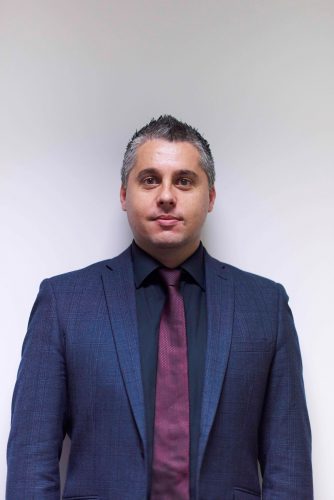
Mr. Isaac Blake is a Romany dancer, choreographer, and cultural advocate dedicated to promoting Gypsy, Roma, and Traveller (GRT) arts, culture, and representation. He trained at the LABAN Dance Centre (London) and the Martha Graham School (New York), later working in Montreal and across the UK as a choreographer for institutions such as the Wales Millennium Centre and the Royal Welsh College of Music & Drama, where he continues to teach.
As the Executive Director of the Romani Cultural & Arts Company (RCAC) in Cardiff, UK, Isaac has played a key role in developing and delivering cultural, educational, and advocacy programs for GRT communities. Under his leadership, RCAC has expanded from a voluntary group to a major NGO, working on site-based arts projects, policy development, and cultural preservation across Wales and the UK.
Isaac has also led significant international initiatives, including serving as Dance Curator for RomArchive, where he collaborated with researchers to document and showcase Romani dance traditions globally. His commitment to LGBTQI+ GRT rights has been instrumental in amplifying the voices of GRT individuals, advocating for visibility, and producing the first international LGBTQI+ GRT spoken history archive alongside a complementary e-book. His work continues to shape artistic and cultural policy, strengthen representation, and support social change for GRT communities in the UK and beyond.
More info: https://romaniarts.co.uk | https://romarchive.eu
Through Gypsy Media Company Ltd, Jake has produced impactful content for major broadcasters and platforms, specializing in projects that challenge stereotypes and promote diverse narratives. His notable works include the 2020 remake of George Michael’s “Freedom” music video, celebrating LGBTQ+ rights, and Virgin Music’s “Alive” video for Chase and Status, which honored Native American culture. In 2022, he produced a cinematic epic poem as part of ERIAC’s Proud Roma campaign, showcasing Romani resilience and identity.
Beyond filmmaking, Jake is also an artist blacksmith, currently working on a major sculptural project that will see 12 sculptures commemorating Romani and Traveller history and culture placed across the UK. His multidisciplinary approach to storytelling—through journalism, film, and visual arts—continues to contribute to cultural representation and social advocacy.
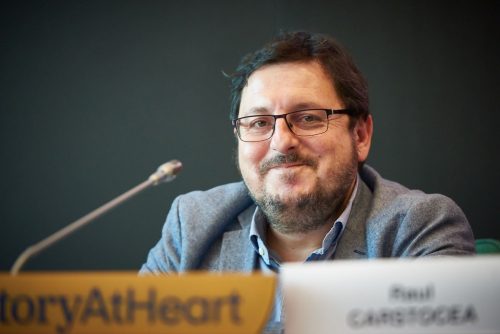
Dr Raul Cârstocea is Assistant Professor in Twentieth-Century European History at Maynooth University, Ireland. He has previously worked at the University of Leicester, the Europa Universität Flensburg, the European Centre for Minority Issues in Flensburg, Germany, and at University College London. He has held research fellowships at the Vienna Wiesenthal Institute for Holocaust Studies, the Institute for East and Southeast European Studies in Regensburg, the NIOD Institute for War, Holocaust and Genocide Studies in Amsterdam, King’s College London, and the Imre Kértesz Kolleg Jena. His research interests focus on anti-Semitism, fascism, nationalism, and the Holocaust, and more broadly on state formation and nation-building processes in 19th and 20th century Central, Eastern and South-Eastern Europe and their consequences for minority groups. He is co-editor of the <em”>Modern History of Politics and Violence book series at Bloomsbury and Vice-Chair of the Scientific Advisory Council of the Observatory on History Teaching in Europe at the Council of Europe.

Mr. Pierre Chopinaud has been a key Roma activist in France for over a decade, advocating for Roma rights, challenging systemic discrimination, and working to improve living conditions, education, and healthcare for Roma communities. As one of the few voices championing this cause, alongside activists like Samir Mile and Anina Ciuciu, he has played a crucial role in fostering social inclusion and justice.
A writer and political scientist, Pierre has significantly contributed to the promotion of Romani literature in France. Since 2005, his translations of Romani poetry have been featured in major literary reviews. His 2020 novel (Editions POL) and 2021 essay on political activism highlight his commitment to shaping public discourse on Roma issues.
Beyond literature, Pierre has actively worked to preserve Roma history and culture. In 2016, he initiated a remembrance event in Paris St Denis, emphasizing the Roma presence in Europe since 1427. As an organizer with La Voix des Roms, he has been instrumental in promoting Romani Resistance Day (May 16), a key symbol of Roma resilience and pride.
His activism, literary achievements, and leadership in Roma advocacy make him a strong figure in the movement for Roma rights and cultural recognition in France.

Ms. Patricia Caro Maya is a Spanish Member of the European Parliament (MEP), psychologist, and feminist activist dedicated to advocating for Roma rights, particularly for Roma women and girls. She assumed her seat in the European Parliament in November 2023, representing the Podemos party.
A strong voice against antigypsyism, she focuses on legislative initiatives to combat discrimination, improve education for Roma children, and address multiple discrimination against Roma women, including obstetric violence. Patricia is also actively engaged in Holocaust remembrance efforts for Roma and Sinti and encourages greater Roma participation in politics.
As one of the few Romani representatives in the European Parliament, she continues to push for structural change and equal opportunities for Roma across Europe.
Colin has researched and published extensively in these related fields, and he has supervised and examined over 100 PhD students in his career. Some of the journals he has published in include Critical Romani Studies, Romani Studies, Social Policy and Society, Scottish Affairs, People, Place and Policy, Radical Statistics, Journal of Social Security Law, Work, Employment and Society, and Journal of Oral History. Previous funders of Colin’s work include Erasmus, British Academy, Scottish Government, Joseph Rowntree Foundation, and the Economic and Social Research Council.
Outside of UWS, Colin is a director of the Coalition for Racial Equality and Rights, and a Trustee of Romano Lav (Roma Voice), both based in Glasgow, Scotland. He is also a member of the Research Advisory Group of the Scottish Human Rights Commission and advises the Scottish Government on Gypsy/Traveller matters, specifically in relation to sites and accommodation. Colin also acts as research advisor to the Traveller Movement and the Advisory Council for the Education of Romanies and Other Travellers, sitting on their respective executive committees.
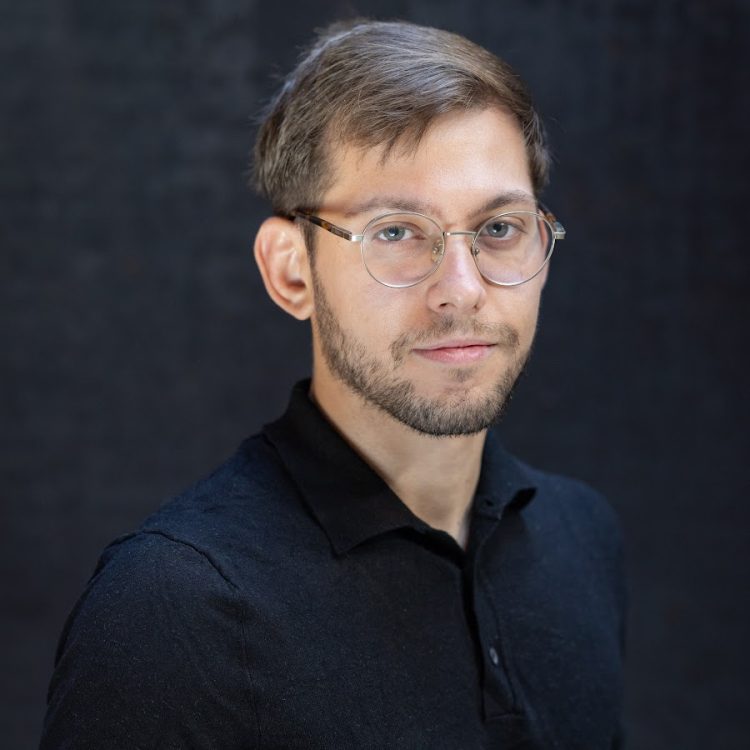
Dr. Rafael Buhigas Jiménez was trained at the Complutense University in Spain dedicating all his research stages to Gitano/Romani history and culminating with the first PhD thesis written on this population during Francoism and from renewed approaches such as urban history and decolonial theory, to which is added the novel methodology of Critical Romani Studies being one of the precursors of it in Spain. He has been part of scientific committees, organization of seminars and teaching innovation projects around the world. In turn, he has been speaker and coordinator of workshops in more than a dozen national and international congresses, as well as a regular collaborator in institutions and media disseminating Romani history. He has carried out research stays in Argentina, Mexico, London and the United States, in different prestigious centers such as the United States Holocaust Memorial Museum. An active participant in Roma social movements in Spain, Rafael focuses on Granada, where he lives in a neighbourhood with a significant Roma presence. He aims to use history and the humanities to bridge academic knowledge with municipal policies and community awareness. He is currently coordinating a research project on “The image of Roma in documentary cinema” at the Autonomous University of Madrid.

Mr. Israel Galván, born in Sevilla, Spain, is a revolutionary flamenco dancer and choreographer known for redefining the boundaries of flamenco. Coming from a family of flamenco artists, Galván has developed a unique style that blends traditional flamenco with contemporary performance art. His works often incorporate elements from various cultural rituals, including bullfighting and football, creating a multifaceted expression of flamenco. Galván has received numerous prestigious awards, including the Premio Nacional de Danza (Spain) and the Bessie Performance Award (USA). He is also an associated artist at Le Théâtre de la Ville, Paris.

Ms. Vera Lacková is a film director and producer from Slovakia, currently based in Vienna, Austria. She is the founder of the production company Media Voice and brings a unique insider perspective to ethnic and political Roma themes through her work. Her debut feature-length documentary, How I Became a Partisan, explores the forgotten stories of Roma partisans, including her great-grandfather Ján Lacko. The film premiered at the goEast Film Festival in Wiesbaden in 2021, where it received the Federal Foreign Office for Cultural Diversity Award. Lacková has participated in the IDFA Academy and is a member of the European Film Academy. Her upcoming project, Do Magic, supported by ERIAC, delves into Romani folklore and intergenerational trauma from the Romani Holocaust. Scheduled for completion in 2026, the film was presented at the Marché du Film in Cannes. Vera’s work is recognized for its powerful storytelling and advocacy for Roma representation in cinema.
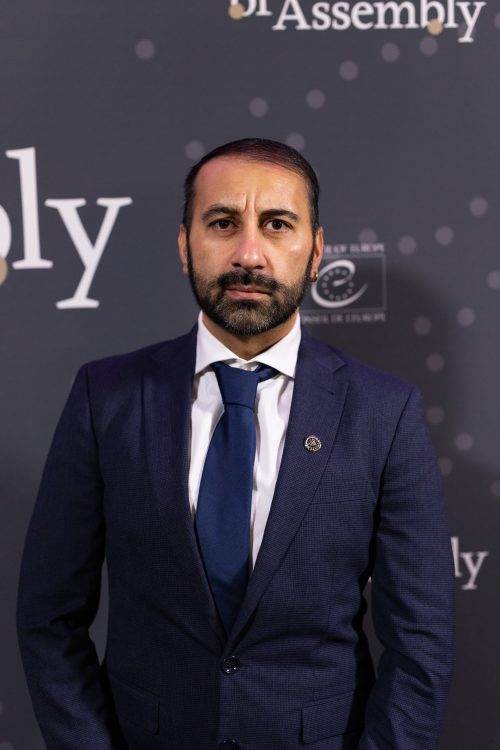
Dr. Dezso Mate is a sociologist with a PhD from Eötvös Loránd University, Hungary. Currently, he is a Research Fellow at the Interdisciplinary Centre for European Studies, Europa-Universität Flensburg, and a Visiting Research Fellow at the Research Centre on Antigypsyism, Heidelberg University. Dr. Mate is also a Barvalipe Academy (Knowledge Production, Research, and Publication) member at the European Roma Institute for Arts and Culture—ERIAC, and a visiting lecturer at Södertörn University’s Critical Romani Studies Department in Stockholm. He is an Alumnus of the Kulturwissenschaftliches Institut (KWI) in Essen. Dr. Mate previously held positions as a Research Fellow and Course Leader at the Central European University – Romani Studies Program in Budapest. He also served as a Visiting Research Associate at the University of Sussex – Centre for Higher Education and Equity Research from 2015 to 2017. Between 2013 and 2018, he contributed as a Junior Research Fellow at the Hungarian Academy of Sciences – Institute for Minority Studies. His research interests encompass dimensions of intersectional and academic antigypsyism, structural racism, social movements, and resilience. His dissertation focused on academic antigypsyism with a social-psychological analysis of resilience.
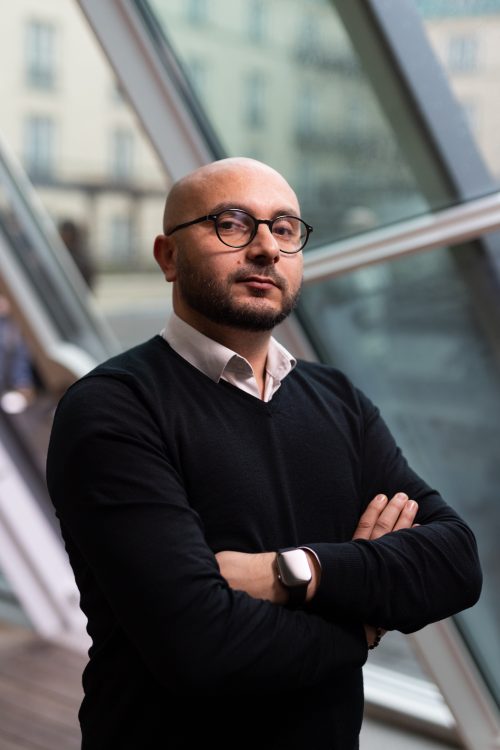
Mr. Avni Mustafa is a seasoned human rights advocate, trainer, and expert on Roma inclusion, with over 20 years of experience addressing minority rights and fostering inclusion both in Kosovo and across the European Union. Throughout his career, Avni has demonstrated a steadfast commitment to improving the rights, opportunities, and living conditions of marginalized and minority communities, particularly focusing on Roma inclusion and empowerment.
Since 2017, Avni has been actively involved with the European Roma Institute for Arts and Culture (ERIAC), contributing to initiatives that promote Roma identity, cultural heritage, and societal inclusion. On a national level in Kosovo, he holds the position of Executive Director at Roma Versitas Kosovo, where he leads strategic programs, capacity-building efforts, and advocacy campaigns that address educational, economic, and social challenges faced by the Roma community.
With his wealth of experience in community development, training facilitation, and policy engagement, Avni has become a recognized figure in the regional and European human rights landscape. His work reflects a deep understanding of minority rights issues and an unwavering dedication to creating sustainable, equitable change for marginalized groups.
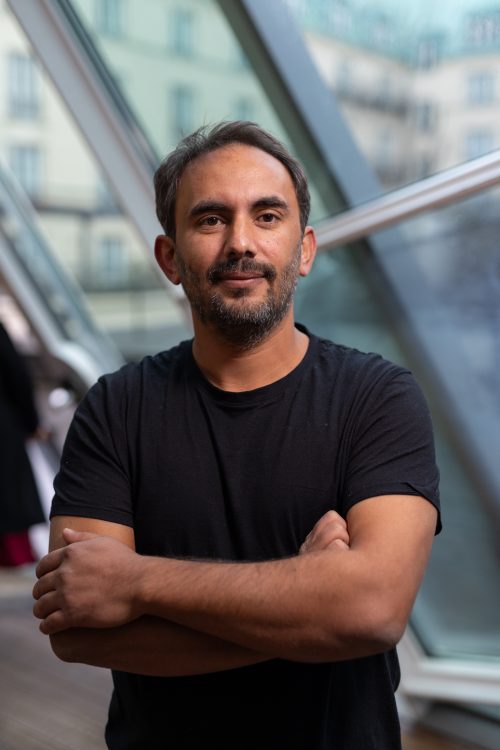
Mr. Sami Mustafa, a French-Kosovar Roma filmmaker born in Pristina in 1984, is a storyteller of resilience and an advocate for Roma voices in cinema. As the founder of Romawood and the Rolling Film Festival, he has created platforms that amplify Roma narratives and challenge stereotypes. He is also an honorary member of ERIAC and a member of the European Film Academy.
Since 2003, Sami has directed and produced over 50 short documentaries, music videos, and a feature-length film. His 2007 documentary Road to Home was the only Kosovar work showcased at the Cannes Film Festival, marking a milestone for Roma representation. His internationally acclaimed 2015 film Trapped by Law won multiple awards and was screened across Europe.
Beyond filmmaking, Sami is dedicated to preserving Roma heritage. His 2021 book Tales from My Grandparents collects traditional Roma folk stories, inspired by the oral narratives of his childhood. Through the Rolling Film Festival, he has curated over 500 films, produced 50 local works, and engaged thousands in conversations on Roma identity.
Sami’s work bridges past and present, reclaiming Roma history through cinema and literature, ensuring that Roma stories are told by Roma voices.
During the Balkan war, he moved to Germany, where his performances at Theater Mülheim an der Ruhr earned critical acclaim. He has taken leading roles in numerous productions, receiving awards such as the Golden Laurel Wreath (MESS Sarajevo, 1991) and the Yul Brynner Prize (Berlin, 2003). In 2017, he received the Šaip Jusuf Lifetime Achievement Award for his contributions to Roma culture.
Since 1996, Osman has worked as a freelance actor and director, co-leading Theater TKO / Choreodrama – Romano Theater in Cologne. He has appeared in over 30 films and TV series in Germany, Macedonia, and Serbia. As a journalist, he produced and moderated Romanes-language programs at Radio Multi-Kulti (2000-2002) and Deutsche Welle (2002-2014).
A poet and translator, Osman’s work captures Roma life, identity, and love. He has also been an active social worker and mediator, promoting Roma culture and theater to challenge stereotypes and foster understanding between Roma and non-Roma communities.
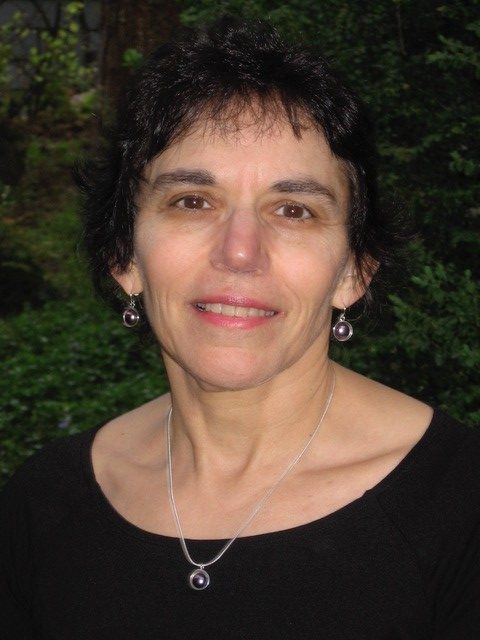
Carol Silverman, Professor Emerita of Cultural Anthropology and Folklore at the University of Oregon, has dedicated over four decades to the study and promotion of Balkan Romani music, culture, and human rights. Through her extensive fieldwork in Bulgaria, North Macedonia, New York, and Western Europe, she explores the intricate connections between music, politics, ritual, and gender within Romani communities. Her scholarly and activist work has made significant contributions to understanding the cultural politics and dynamics of Balkan music in diaspora contexts.
Her landmark publication, Romani Routes: Cultural Politics and Balkan Music in Diaspora (2012, Oxford University Press), which received the Society for Ethnomusicology’s book prize, delves into the complexities of how Romani music operates as both a valued element of global world music markets and a symbol of multicultural identity in cosmopolitan areas. Following this, her book Balkanology (2021, Bloomsbury), analyzes the history, politics, and aesthetics of Bulgarian wedding music. Her recent research examines the social and economic aspects of Romani migration via music in transnational contexts.
Silverman’s extensive publications address critical issues such as the globalization of “Gypsy” music, focusing on its performance, consumption, marketing, and production while critically assessing themes of representation and appropriation. As a committed activist, she collaborates with the US-based NGO Voice of Roma and serves as a curator for Balkan music for the international digital platform RomArchive.eu. Additionally, she is a professional vocalist and educator, deeply engaged in teaching and performing Balkan music.
Her nomination to the Barvalipe Academy is based on her profound impact on cultural understanding, aiming to enrich the academy’s mission with her expertise in human rights advocacy for and among Roma.
| Meeting Report | Date and Location |
|---|---|
| 1st Barvalipe Academy meeting report | February 5th, 2019, Belgrade, Serbia |
| 2nd Barvalipe Academy meeting report | December 9th, 2019, Berlin, Germany |
| 3rd Barvalipe Academy meeting report | November 16th, 2020, Berlin, Germany |
| 4th Barvalipe Academy meeting report | December 14, 2020, Online |
| 5th Barvalipe Academy meeting report | September 24, 2021, Online |
| 6th Barvalipe Academy meeting report | November 24, 2021, Online |
| 7th Barvalipe Academy meeting report | January 26, 2022, Online |
| 8th Barvalipe Academy meeting report | December 2, 2022, Online |
| 9th Barvalipe Academy meeting report | April 4, 2023, Online |
| 10th Barvalipe Academy meeting report | November 27, 2023, Online |
| 11th Barvalipe Academy meeting report | February 26, 2024, Online |
| 12th Barvalipe Academy Meeting report | September 19, 2024, Online |
| 13th Barvalipe Academy Meeting report | April 16, 2025, Online |
| 14th Barvalipe Academy Meeting report | June 30, 2025, Online |